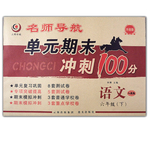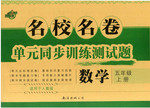题目内容
阅读理解。
Charlie was spending his summer holidays by the sea. One day he climbed over some rocks. He was
looking for some crabs (螃蟹) for supper. He took off his shorts and put them on a rock.
The afternoon went quickly. Time was flying by. Look! The sea was coming in fast. It was over some
of the rocks now.
Charlie looked up. "It's getting late. Oh dear! Look at the sea. Where are my shorts now?" he thought. He
saw them on a rock. Oh dear! The rock was an island! Now he must swim and got them.
Charlie jumped into the sea and started swimming. He reached the rock and put his shorts on his head.
Then he started swimming back. Oh no! The sea was too strong for Charlie. It was pulling him away from
the beach.
"Help!" he called. "I can't get back."
Luckily, a boat was coming by. The people in the boat saw Charlie and heard his call for help.
"Are you all right?" asked the woman in the boat.
"No! I can't swim back. The sea is too strong."
The woman stopped the boat and she and a girl pulled Charlie into the boat. He threw his shorts into the
boat too. Then they turned the boat Bound and took Charlie back to the beach.
"That was lucky," said the woman.
"Thank you very much," said Charlie.
"Be careful next time," said the woman. "The sea is usually very strong near these rocks."
"Next time, I'm going to keep my shorts in my bag," said Charlie. "Better safe than sorry!"
looking for some crabs (螃蟹) for supper. He took off his shorts and put them on a rock.
The afternoon went quickly. Time was flying by. Look! The sea was coming in fast. It was over some
of the rocks now.
Charlie looked up. "It's getting late. Oh dear! Look at the sea. Where are my shorts now?" he thought. He
saw them on a rock. Oh dear! The rock was an island! Now he must swim and got them.
Charlie jumped into the sea and started swimming. He reached the rock and put his shorts on his head.
Then he started swimming back. Oh no! The sea was too strong for Charlie. It was pulling him away from
the beach.
"Help!" he called. "I can't get back."
Luckily, a boat was coming by. The people in the boat saw Charlie and heard his call for help.
"Are you all right?" asked the woman in the boat.
"No! I can't swim back. The sea is too strong."
The woman stopped the boat and she and a girl pulled Charlie into the boat. He threw his shorts into the
boat too. Then they turned the boat Bound and took Charlie back to the beach.
"That was lucky," said the woman.
"Thank you very much," said Charlie.
"Be careful next time," said the woman. "The sea is usually very strong near these rocks."
"Next time, I'm going to keep my shorts in my bag," said Charlie. "Better safe than sorry!"
1. Where did the story take place?
A. In the hills
B. By the sea
C. On the river
D. In the town
B. By the sea
C. On the river
D. In the town
2. What was Charlie doing that day?
A. He was watching the sea
B. He was looking for seafood
C. He was lying on the beach
D. He was helping the people in the boat
B. He was looking for seafood
C. He was lying on the beach
D. He was helping the people in the boat
3. Before looking for crabs, Charlie put _______.
A. his shirts in a bag
B. his shoes on a rock
C. his shorts in a bag
D. his shorts on a rock
B. his shoes on a rock
C. his shorts in a bag
D. his shorts on a rock
4. Charlie cried for help because _______.
A. the sea was carrying him away from the beach
B. the sea was pulling Charlie onto the rocks
C. the sea was getting lower
D. the sea was going out
B. the sea was pulling Charlie onto the rocks
C. the sea was getting lower
D. the sea was going out
5. Who saved Charlie?
A. A man and a girl
B. Two men
C. A woman and a girl
D. A man and a boy
B. Two men
C. A woman and a girl
D. A man and a boy
1-5 B B D A C

练习册系列答案
 名师导航单元期末冲刺100分系列答案
名师导航单元期末冲刺100分系列答案 名校名卷单元同步训练测试题系列答案
名校名卷单元同步训练测试题系列答案
相关题目
| 完形填空。 | ||||
| When I was young, I was very embarrassed (尴尬) to be seen with my father. He was disabled and very short, and he 1 with great difficulty. When we walked together, with his hand on my arm for balance, people would 2 . I would be nervous about the unwanted 3 . It was 4 for us to walk in step, and because of that, we didn't say much as we went 5 But as we started out, he always said," You set the pace (步幅). I will try to follow you." Our usual walk was to or from the subway, which was how he got to work. He never missed a day, and would 6 it to the office even if others could not. He 7 talked about himself as an unhappy man, nor did he show any envy (嫉妒) of the more fortunate or able. What he 8 in others was a "good heart," 9 if he found one, the owner was good enough for him. He has been gone many years now. I wonder if he felt I didn't 10 to be seen with him during our walks. If he did, I am sorry I never told him how 11 I was. I think of him when I complain about life, when I envy another's good fortune, and when I don't have a "good heart". At such times I put my hand on his arm to get back my 12 , and say, "You set the pace. I will try to follow you." | ||||
|
| 完形填空。 | ||||
| One day, a young man asked Albert Einstein, 1 great German scientist, 2 the secret (秘密) of success (成功) was.The scientist 3 him that the secret of success is hard work. A few days 4 the young man asked him the 5 question again. Einstein was very 6 . He did not say 7 , but wrote a few 8 on a piece of paper and 9 it to the young man. The young man looked 10 the piece of paper. On it was 11 : A=X+Y+Z." What 13 this mean?" asked the young man."A means success," 14 the old scientist."X means hard work, Y means good methods (方法), and Z…Z mean 59 talking and start to 15 ." | ||||
|
| 完形填空。 | ||||
| I have only seen my father cry once. It was at the Alton train station, back when the trains still ran. I was on my way to Philadelphia to 1 the train that would take me to Boston and college. I was eager (热切的) to go. College, with its 2 and the promise of the better future had become more interesting. It 3 me to see tears in my father's eyes as he shook my hand and said goodbye. For eighteen years, we had never had a(n) 4 to say goodbye like this. He was taller than me, 5 I was not short. I was going somewhere, and he was seeing me off. He 6 me, but he had not needed to say before, and now his tears were 7 it. The tears in my father's eyes told me that we would have less and less to do with each other. I had taken my 8 from his, and now I was learning it. The train 9 and I boarded (登上) it. My father looked smaller from the train. We 10 goodbye to each other through the window. I was wearing the heavy winter coat that my father had bought for me to keep me from catching a cold in New England. | ||||
|
